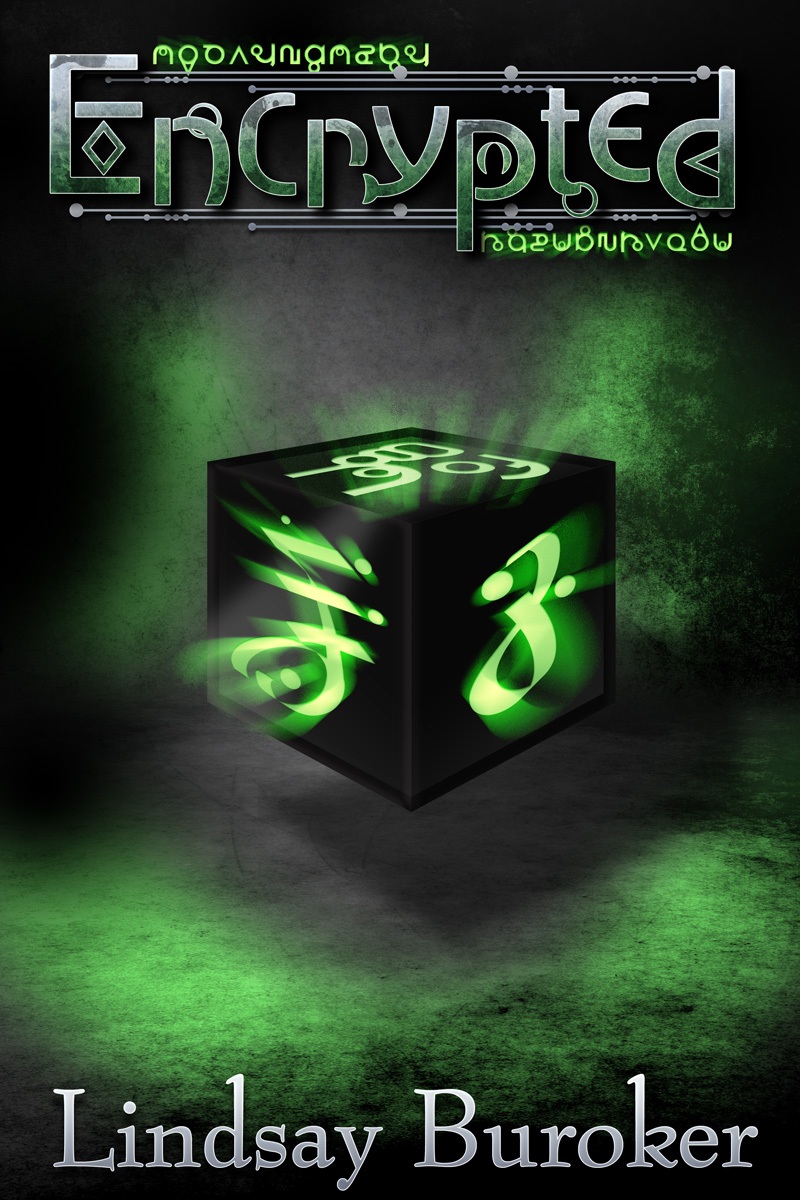In the year that I’ve been self-publishing, I’ve been fortunate enough to receive many nice reviews and compliments on my work. It still tickles me to hear that other people enjoy spending time with my characters as much as I do.
It’s always nice to hear, as well, that someone believed the editing was of good quality, because that’s one of the areas where it’s tough to match up with the traditional presses. Even when you have beta readers and hire a freelance editor, you still don’t have as many eyes going over a manuscript as you’d have with the traditional system.
My Early Experiences
As with many new authors (AKA folks who aren’t yet making anything from their writing), I was trying to save money with my first manuscript, The Empeor’s Edge. I hired someone offering to proofread inexpensively on a forum. He said he was an English teacher, so I figured that was good enough.
He ended up editing the heck out of the manuscript, and most of the suggestions were incorrect. I don’t mean that we had stylistic differences of opinion; I mean the guy didn’t know how to punctuate dialogue correctly. In the end, it was a big waste of time for both of us, and, no, he didn’t offer to refund the money, even though I pointed him to sources on the web for examples of proper punctuation.
Lesson learned for me.
I went on to hire another editor (an actual freelance editor with a website this time!), though I was still trying to keep my costs down, especially since I’d just wasted money, and went for a simple proofreading. Overall, the experience was good, but readers did point out quite a few typos or flubbed words that had slipped through. (I should qualify that, I suppose, because some indie books are riddled with errors — EE had maybe 20 in 105,000 words, which isn’t a ton, but it bothers me when that many things slip through.)
It’s funny (or sad?) that I actually went into that first book thinking, “Oh, it’ll be nearly flawless since I ran it through my writing workshop twice.” Right. Note to self: beta readers are, rightfully so, usually more concerned about story and characters than fixing your typos, and, even when they do point such things out, you tend to add in as many errors as you fix when making corrections.
These days, I’m fortunate to be making enough from my book sales that I don’t have to scrimp quite so much, and I can afford to pay for a couple of read-throughs with an editor who has many years of experience in the business. She has a good eye and catches a lot. (If only I could get her to follow me around and proofread my blog posts, Facebook messages, and Twitter tweets.)
You’re probably always going to have a few things slip through (hey, that even happens with books from traditional presses), but it’s good to know that those types of errors are few and far between.
Hiring an Editor and Associated Costs
So, if you’re first starting out, what should you look for?
First off, let’s talk about the different options you have as a writer hiring an editor. And, because you’re probably wondering, we’ll discuss costs, too, though these will vary a lot from editor to editor.
Developmental/Substantive Editing
You can find freelance editors who specialize in developmental editing. This is where they’re going to look at narrative flow, consistency, logic, story and character development, etc. In short, they may tear your manuscript to shreds and tell you to re-write entire chapters.
This is the most expensive form of editing, and you may very well get quotes in the $2,000-$4,000 range for a novel-length manuscript. If you write epic fantasy tomes that, if dropped, could kill a chihuahua, then you might get an even higher quote.
While developmental editing often includes copy-editing/proofreading, I personally think that this is too much to pay for most self-publishers. You’re putting yourself into a huge hole right from the beginning, and it can take a long time (if ever) for your first novel to earn out when you start with such high expenses.
I believe that free/inexpensive writing workshops can fill the same role (the nice thing about a workshop is that you get to experience the editing styles of multiple other writers, some of whom know those grammar rules forward and backward, and you can develop long-term, beta-reading relationships with the ones whose suggestions click with you).
You’ll learn a lot from the workshop process too. I’m sure some will disagree with me, but I don’t think you’re ready to self-publish if you’ve never had strangers shred your work before. Friends and relatives don’t count. Your fellow writers will be some of your toughest critics, so if you can get them to like it, then maybe you’re ready for the next stage, hiring an editor and pubishing that puppy.
Copy Editing
This is when an editor reads through, often twice, to look for typos, missing words, frequently used words (apparently my characters were “lunging” all over the place in EE3!), incorrect words, grammatical boo boos, and awkward sentences.
The editor won’t typically make comments about story or character, so you should be confident that you have things fairly well nailed down ahead of time. Of course, some editors may stray into developmental editing territory from time to time if they see the need. It’ll depend on the editor and what you ask for.
With copy-editing, expect your person to make changes in the text. MS Word is what most people in the biz use, but you can find Mac-friendly editors, too, who have Pages. With either program, you can choose to accept or reject the changes with a mouse click.
Note: if you’ve been writing for a while, and you’re very confident in your style and your characters’ voices, then you may find yourself rejecting a lot of the suggestions (I do this, much to my poor editor’s chagrin). It’s not at all uncommon for freelance editors to have more experience with non-fiction than fiction (this whole rah-rah-self-publishing boom is quite new!), so there can be a little friction when it comes to matters of style. Just remember that you’re the boss, and it’s okay to reject changes! Most editors will understand that you’re not necessarily going to agree with everything. Once you find an editor you like working with, you’ll both get more used to each others styles.
Copy editing costs are usually figured on a per-word or per-page basis, so get out your calculators. Typical costs might be in the neighborhood of one cent per word. So, if you need 100,000 words copy edited, that’ll be $1,000.
I’ve definitely seen editors who charge more, but that may be getting into the realm of too-pricy-for-a-self-publisher. You need to shop around to find an editor who does a good job for you and offers an affordable rate. Don’t be afraid to ask an editor to give you a break. It won’t always happen (it’ll probably depend on how busy they are), but many are sympathetic to indie authors. They know a lot of us are just trying to start our writing careers up and don’t have a lot of money to spend.
But be realistic in your requests too. If you know grammar isn’t your strength, and there are likely a lot of flubs in your manuscript, be aware of how many hours are going to be involved in editing it. You may be tickled if you find someone on Craigslist or a message board to copy-edit your 150,000-word novel for $200, but you may either a) get a poor result or b) end up paying someone the equivalent of two dollars an hour. Neither are cool.
Note: Because editing, even copy editing, is a big expense, you may want to look for editors who offer sample edits. This might be a few trial pages for $25 or some such, and that gives you an idea about the suggestions they’ll make. I highly recommend this, even over getting recommendations from other indie authors (unless you’ve read that author’s book and found their editing to be nearly flawless). Remember, others indies are often new to the game, too, and haven’t necessarily worked with enough editors to make useful comparisons.
(Editorial) Proofreading
This is your least invasive (or, as the case may be, least corrective) form of editing and typically involves checking for typos, missing words, punctuation issues, etc. You may only get one pass from an editor here.
Costs for a novel-length manuscript may be in the neighborhood of .0035 to .006 a word, so a fraction of a cent per word. It doesn’t sound like much, but even that adds up for something novel-length. You may want to go ahead and pay for copy-editing, so that you get a more thorough look from an editor.
Editing Software
If you absolutely can’t afford to hire an editor, editing software such as AutoCrit is an inexpensive option and can help you find some of the common mistakes in your manuscript. I haven’t tried it, but I’ve heard good things from those who have.
Personally, I’d put the pennies toward hiring a human being unless you want to use the software in conjunction with hiring an editor later. They do have a free trial.
* * *
Okay, readers, authors, and editors who might pop in, anything to add? I know I’ve seen a lot of variation on what exactly falls into each category of editing, so I imagine folks might have differing thoughts here.


 If you go surfing around Amazon, you’ll notice a lot of the books in the Kindle Store that look self-published and yet have publishers listed. Boom Stick Publishing. Harvest Moon Press. Soft Kitty Productions…
If you go surfing around Amazon, you’ll notice a lot of the books in the Kindle Store that look self-published and yet have publishers listed. Boom Stick Publishing. Harvest Moon Press. Soft Kitty Productions… A few years ago, I watched a YouTube video from an internet marketing guru (yes, he did try to sell me something at the end) that talked about why Coca-Cola was such a good brand name. Among other things, it had alliteration and rhyme, two elements that help people remember things.
A few years ago, I watched a YouTube video from an internet marketing guru (yes, he did try to sell me something at the end) that talked about why Coca-Cola was such a good brand name. Among other things, it had alliteration and rhyme, two elements that help people remember things.


